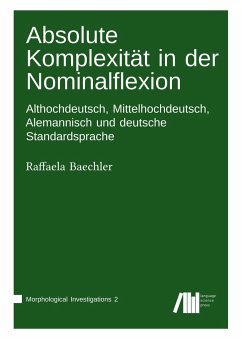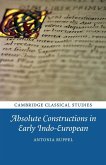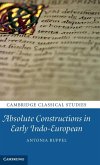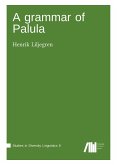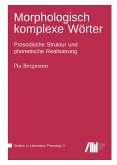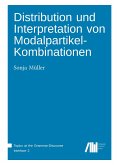This book provides a quantifiable measure and analysis of absolute complexity in the nominal inflection of 17 Alemannic dialects, of standard German as well as of Middle and Old High German. The data is based on grammatical descriptions. What can be interpreted as being more or less complex in a language system is deduced from LFG (Lexical-Functional Grammar) and from an inferential-realisational morphological framework. The tool to measure inflectional complexity is also developed from these frameworks. Variation in the inflectional complexity is analysed based on the following factors: diachrony, isolation, language contact, standardisation, and dialect groups. Diese Arbeit quantifiziert und analysiert die absolute Komplexität in der Nominalflexion von 17 alemannischen Dialekten, der deutschen Standardsprache sowie des Mittel- und Althochdeutschen. Als Datengrundlage dienen Ortsgrammatiken. Die theoretische Grundlage bilden LFG (Lexical-Functional Grammar) und die inferentielle-realisierende Morphologie, wovon abgeleitet wird, was ein System komplexer bzw. simpler macht. Auf diesen Modellen basiert auch die eigens entwickelte Methode zur Messung der morphologischen Komplexität. Die Variation in der Komplexität der Nominalflexion wird anhand der folgenden Faktoren analysiert: Diachronie, Isolation, Kontakt, Standardisierung und Dialektgruppen.
Hinweis: Dieser Artikel kann nur an eine deutsche Lieferadresse ausgeliefert werden.
Hinweis: Dieser Artikel kann nur an eine deutsche Lieferadresse ausgeliefert werden.

